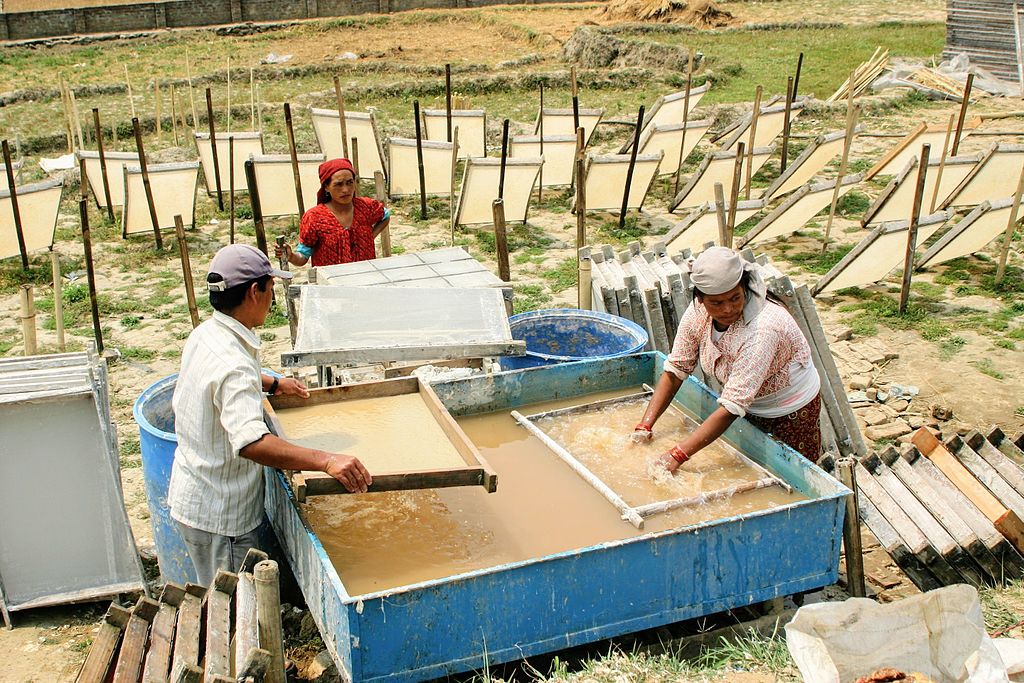The Cottage and Small Industries Development Committee’s data show that only four out of the total of 20 such industries registered in the district are in operation – that also in challenging situation. They had been established some 10-15 years ago.

Dudhkoshi Paper Industry based in Jubhing of Khumbu Pasang Lamu rural municipality-1 is closed now. Its proprietor Prem Thapa Magar said a lack of human resources led to such situation. The people who invested in the traditional industries with high hope of generating both income and employment for the locals are struggling to sustain the business.
The Saraswoti Nepal Paper Industry at Mahakulung rural municipality is hardly running. “Tedious government policy and rules are also blamed for the creation of a discouraging atmosphere for the paper industries,” said proprietor Uttam Kumar Rai. He insisted that the government should bring a flexible policy and other measures to promote paper industries. Good profit is expected if such industries are provided appropriate atmosphere to operate to their full potentiality and efficiently.
Mangal Sing Tamang, who owns the MD Paper Industry based in Mapya Dudhkoshi rural municipality has same experiences. He has no sufficient human resources to collect Lokta (raw materials extracted from Argeli plant for making the Nepali paper) from the jungle.
Alpine zone in the district has much production of raw materials for the Nepali paper. Argeli plants are produced at a good scale in the community as well as private forests, but its proper utilization is marred by various sorts of challenges. Lokta can be used for making doko traditional baskets and Namlo which are necessary to carry or transport loads in the areas without road facility, in traditional agriculture and for other various purposes including in construction works, but lack of skilled human resources, State’s unclear policy and less investment have been barriers for its promotion. Besides, new generations mainly youths are not interested in Lokta related business.
Nepali paper has its markets in foreign countries as well. As claimed by entrepreneur and trainer Dawa Tamang, the district’s product is exported abroad via Kathmandu. It is sold at Rs 3000 to 3,500 as per core, the quantity measurement scale, depending on the paper quality. One core comprises 200 pages with A4 size. Four dharni of lokta (one dharni is equivalent to 2. 25 kgs) is required to produce one core paper. One person can collect this volume of naturally available raw materials in one day.
The labour cost for the production of one core paper is Rs 500 and production of more than this quantity by a single person in one day is said to be possible.
There will be more profit in the use of more labour.
Use of Nepali paper is mandatory in the law-related affairs in Nepal.